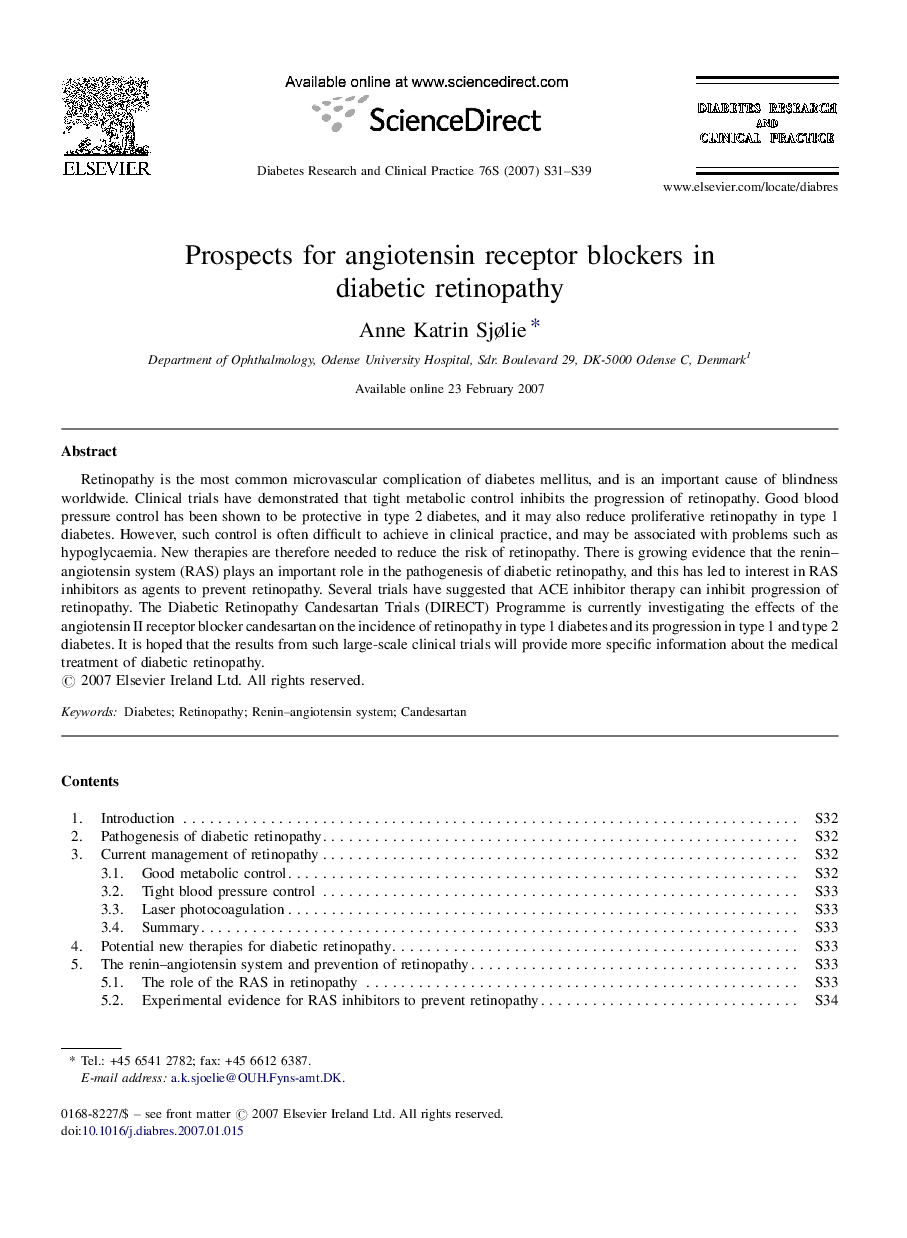| Article ID | Journal | Published Year | Pages | File Type |
|---|---|---|---|---|
| 2798913 | Diabetes Research and Clinical Practice | 2007 | 9 Pages |
Retinopathy is the most common microvascular complication of diabetes mellitus, and is an important cause of blindness worldwide. Clinical trials have demonstrated that tight metabolic control inhibits the progression of retinopathy. Good blood pressure control has been shown to be protective in type 2 diabetes, and it may also reduce proliferative retinopathy in type 1 diabetes. However, such control is often difficult to achieve in clinical practice, and may be associated with problems such as hypoglycaemia. New therapies are therefore needed to reduce the risk of retinopathy. There is growing evidence that the renin–angiotensin system (RAS) plays an important role in the pathogenesis of diabetic retinopathy, and this has led to interest in RAS inhibitors as agents to prevent retinopathy. Several trials have suggested that ACE inhibitor therapy can inhibit progression of retinopathy. The Diabetic Retinopathy Candesartan Trials (DIRECT) Programme is currently investigating the effects of the angiotensin II receptor blocker candesartan on the incidence of retinopathy in type 1 diabetes and its progression in type 1 and type 2 diabetes. It is hoped that the results from such large-scale clinical trials will provide more specific information about the medical treatment of diabetic retinopathy.
